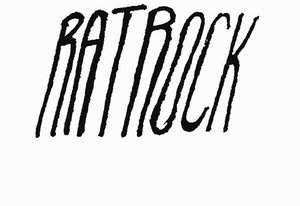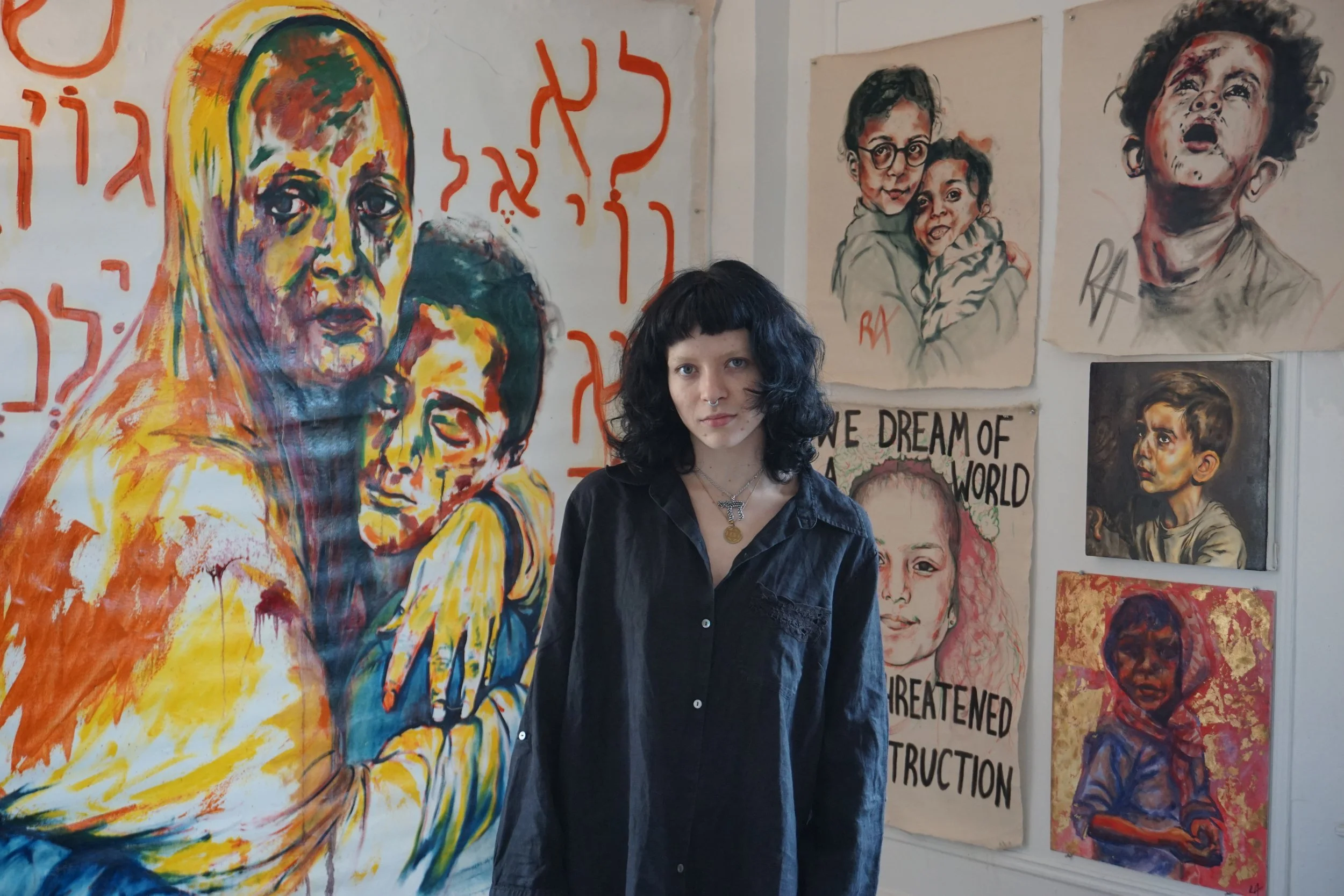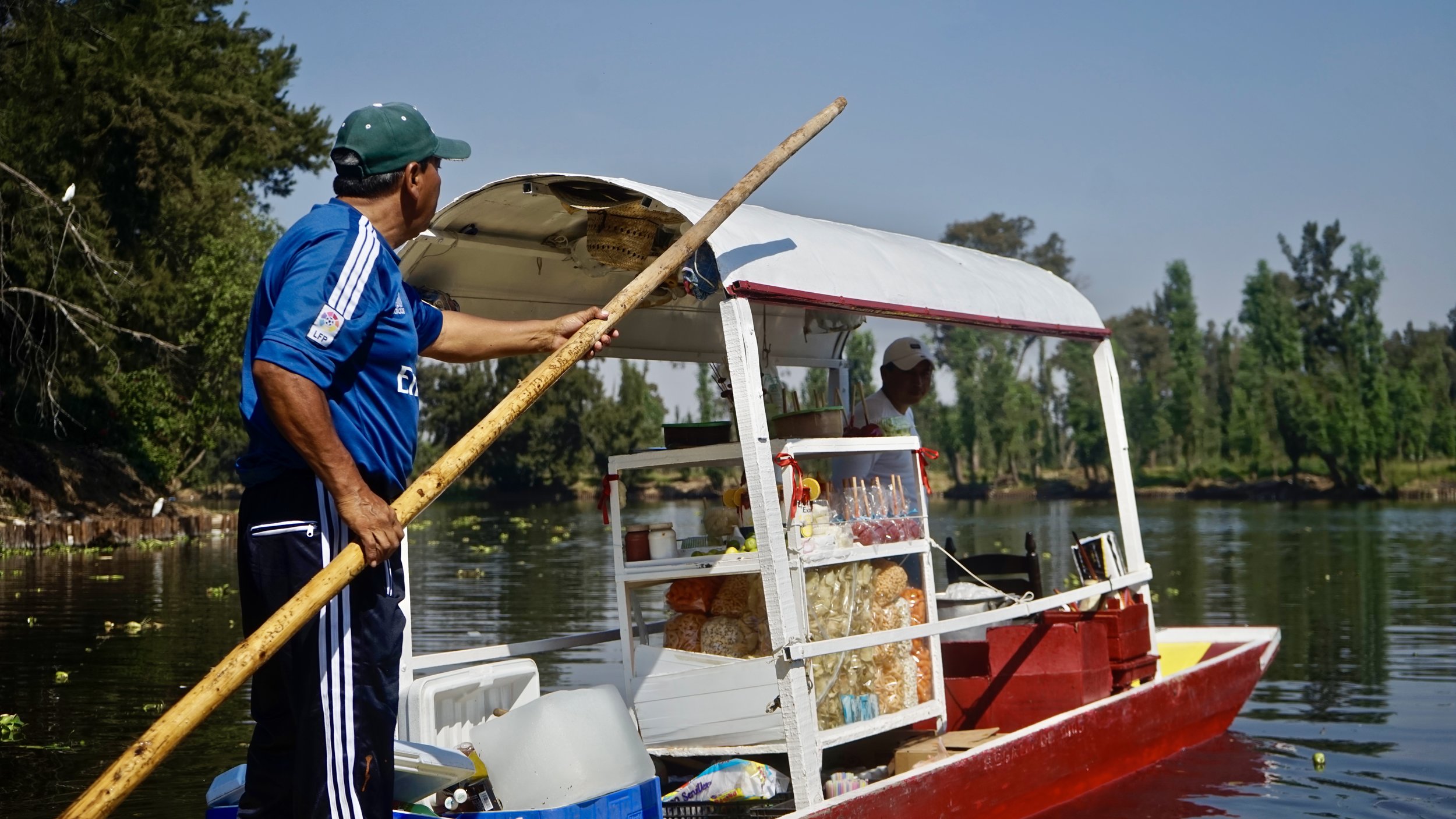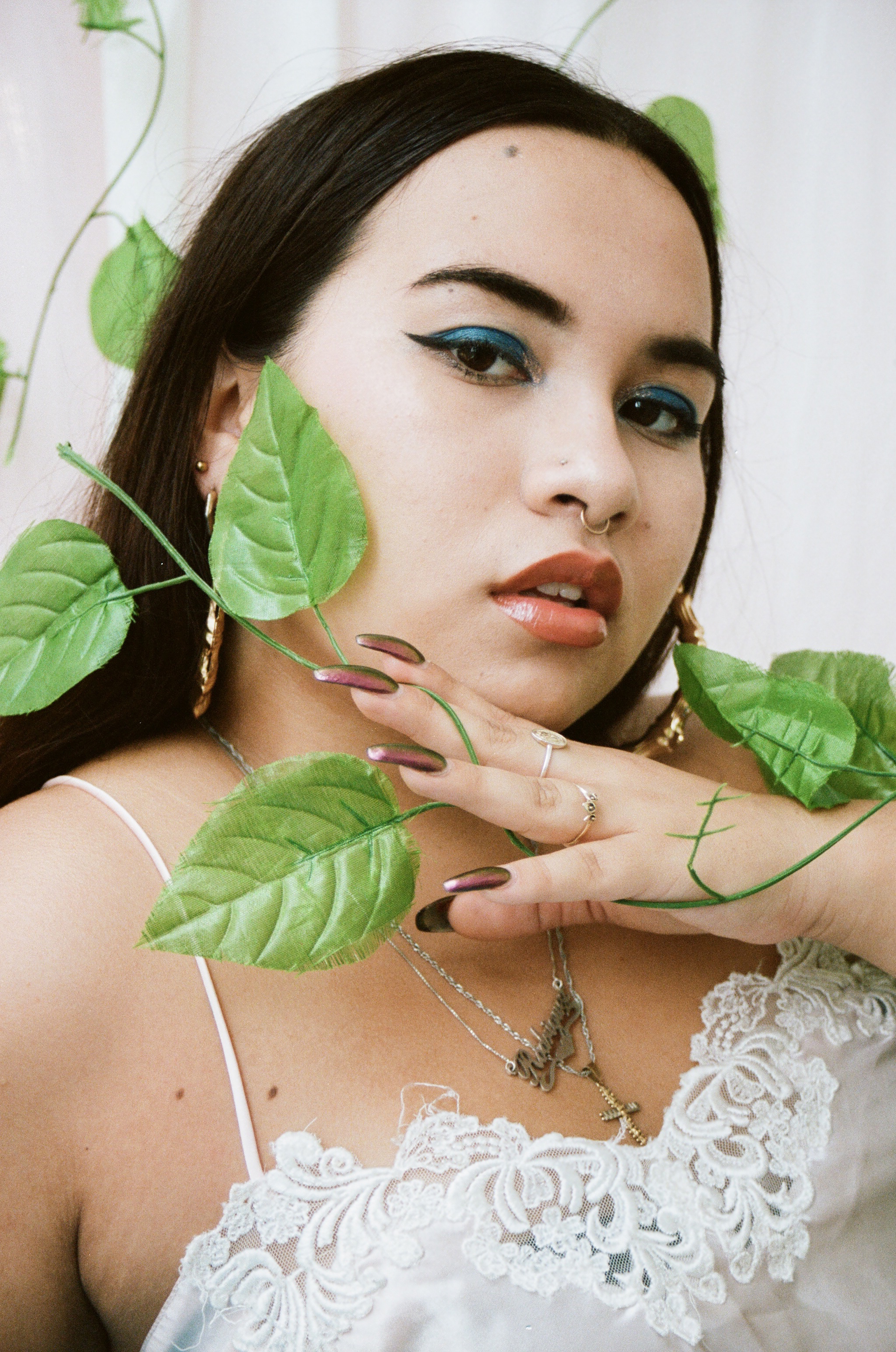
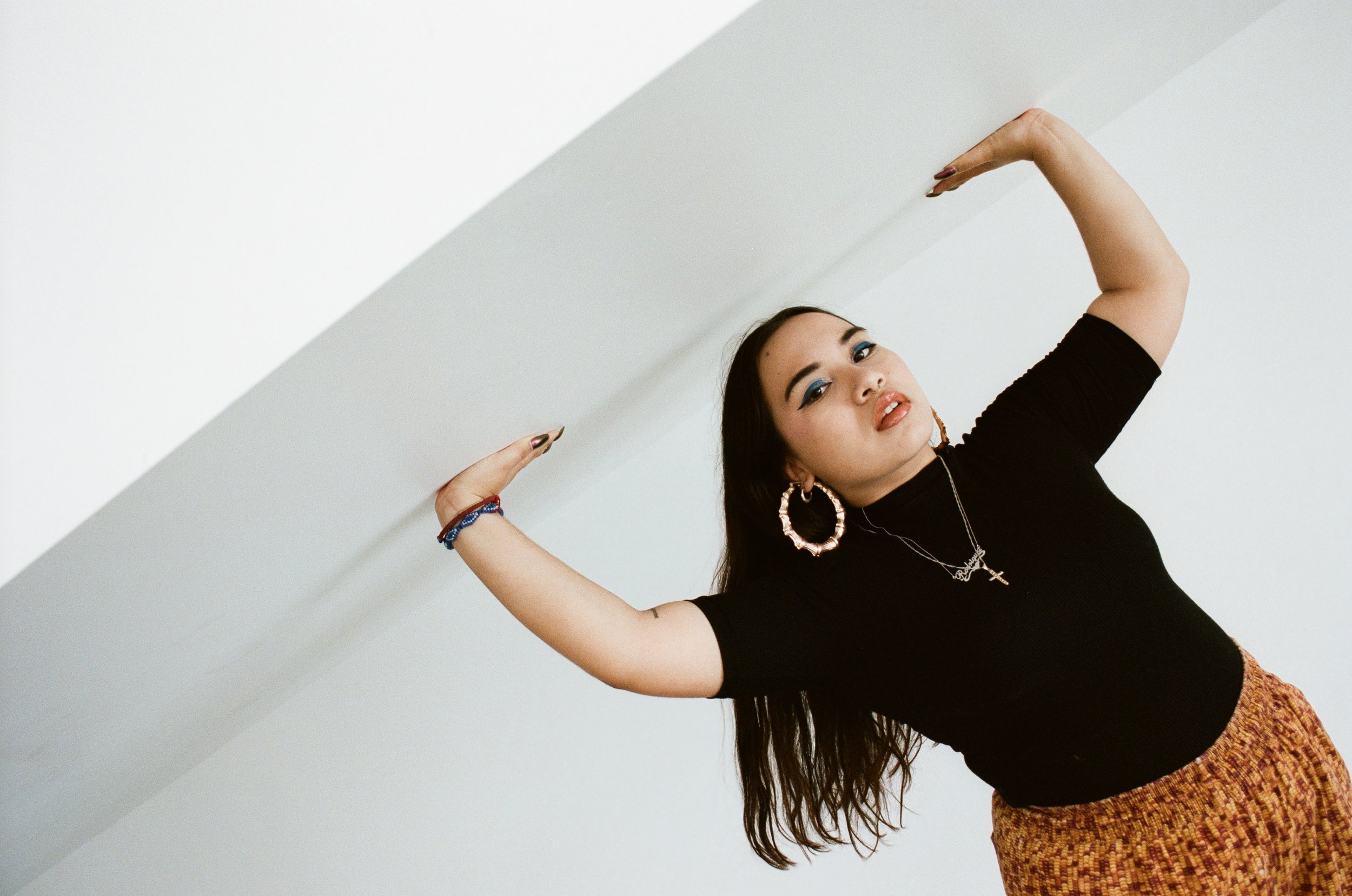
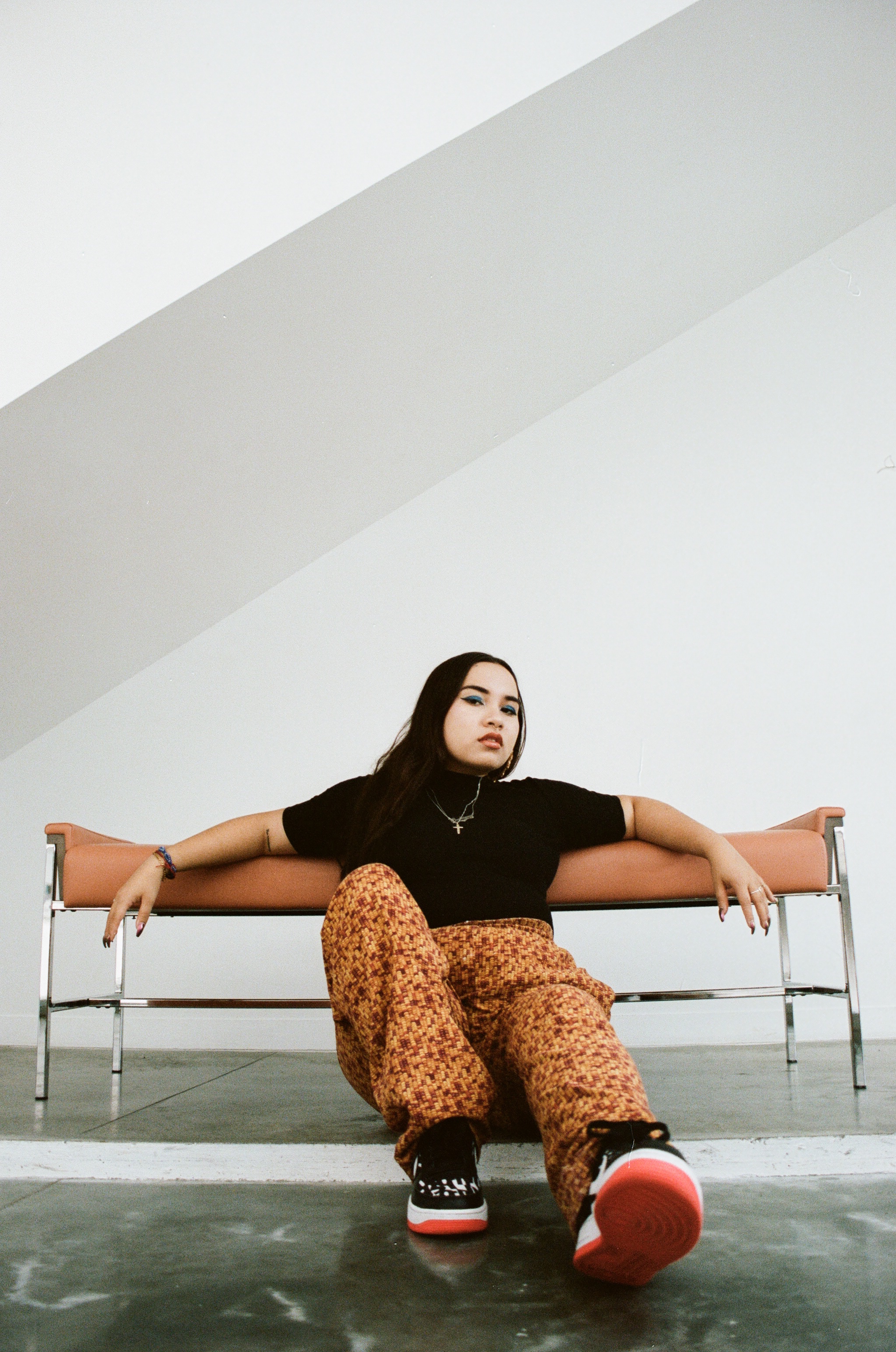
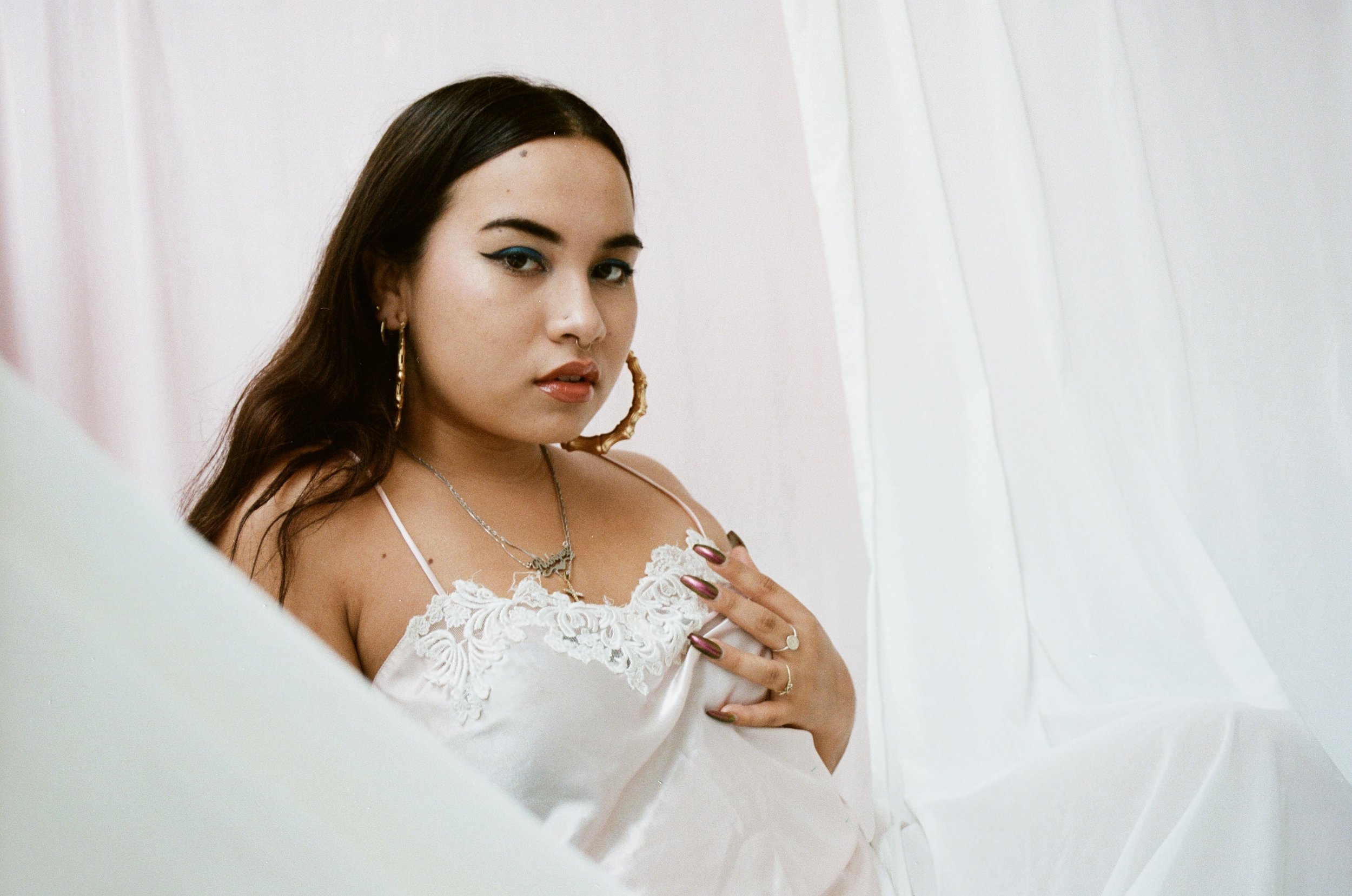
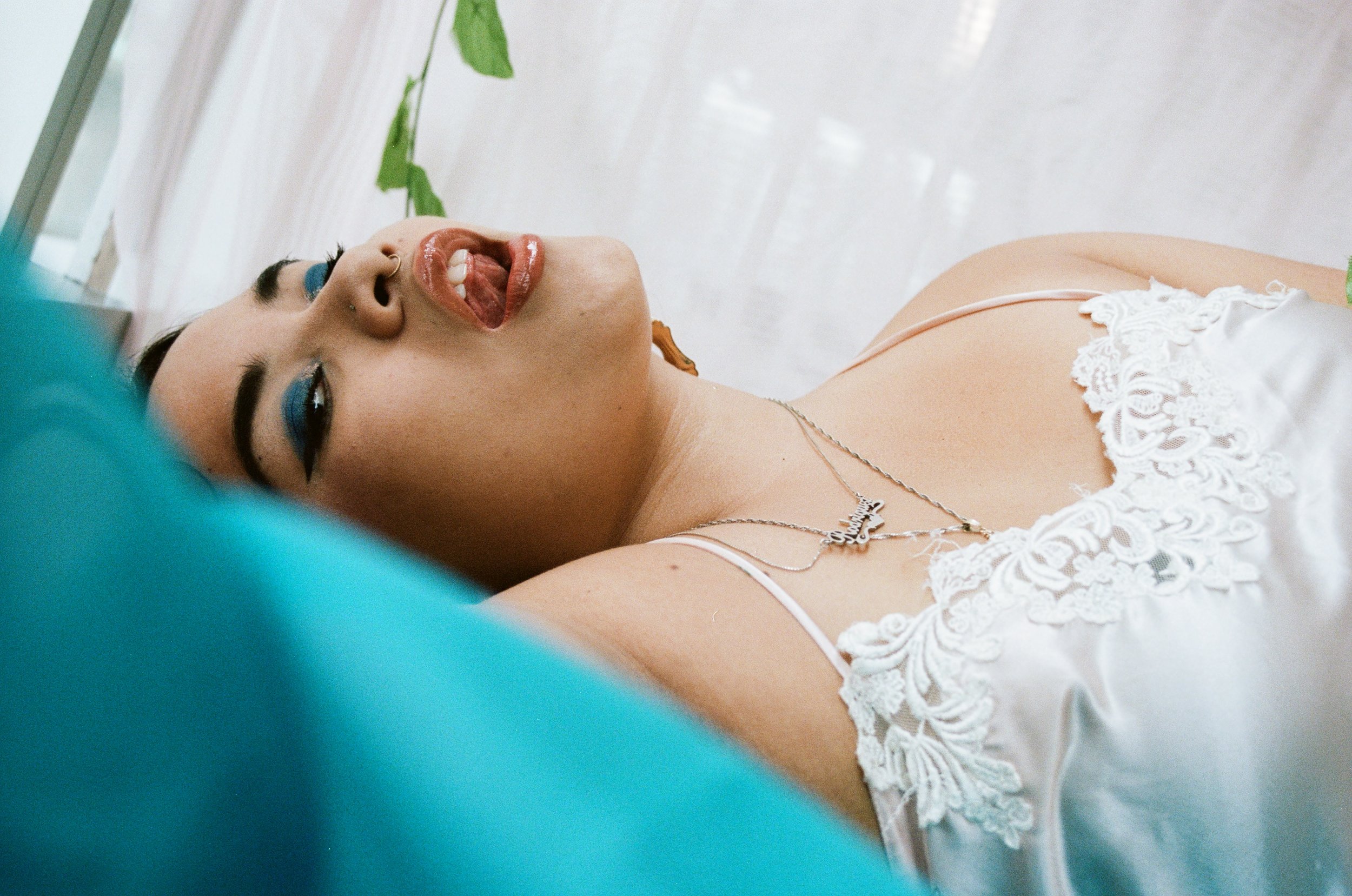

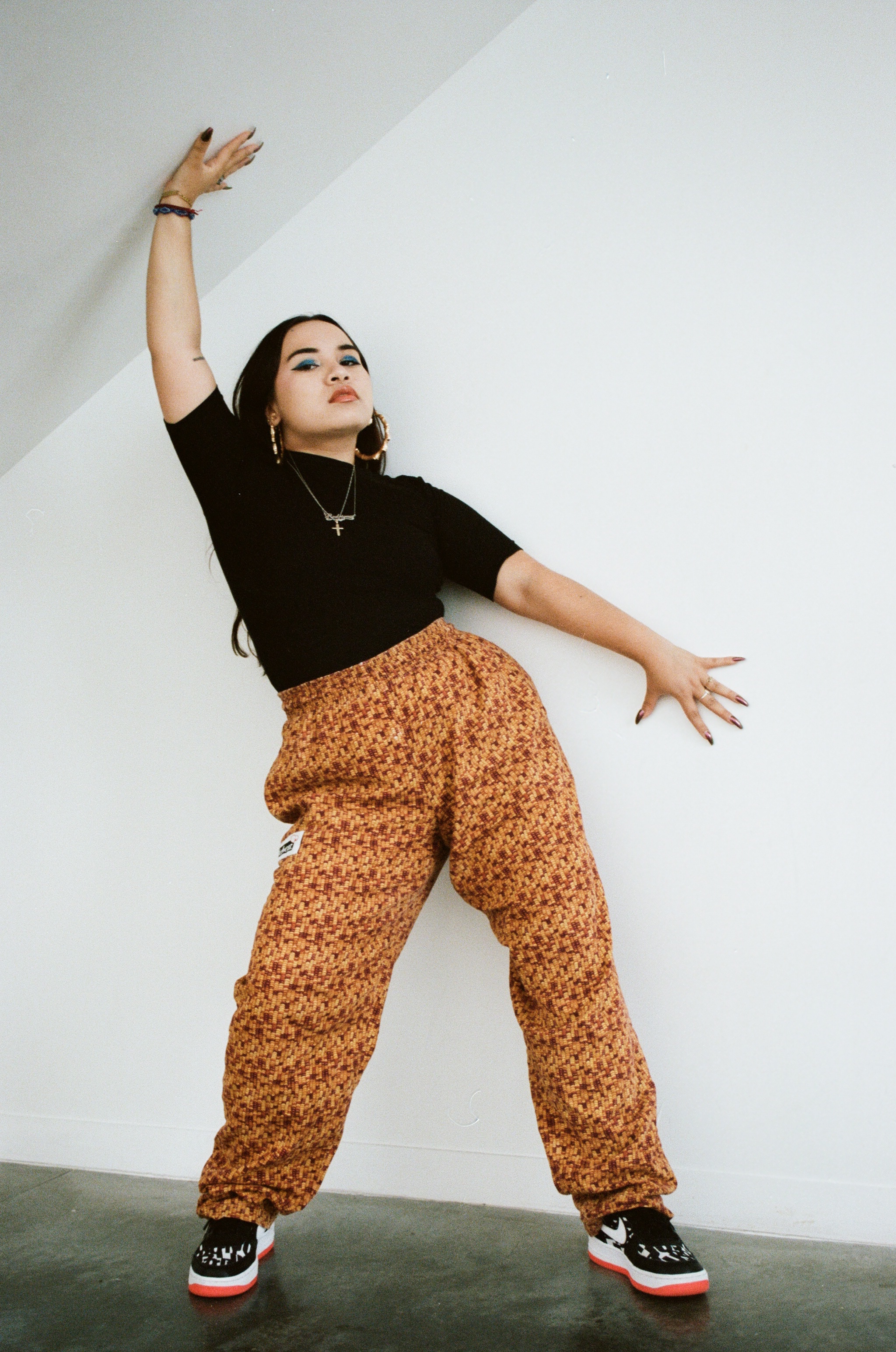
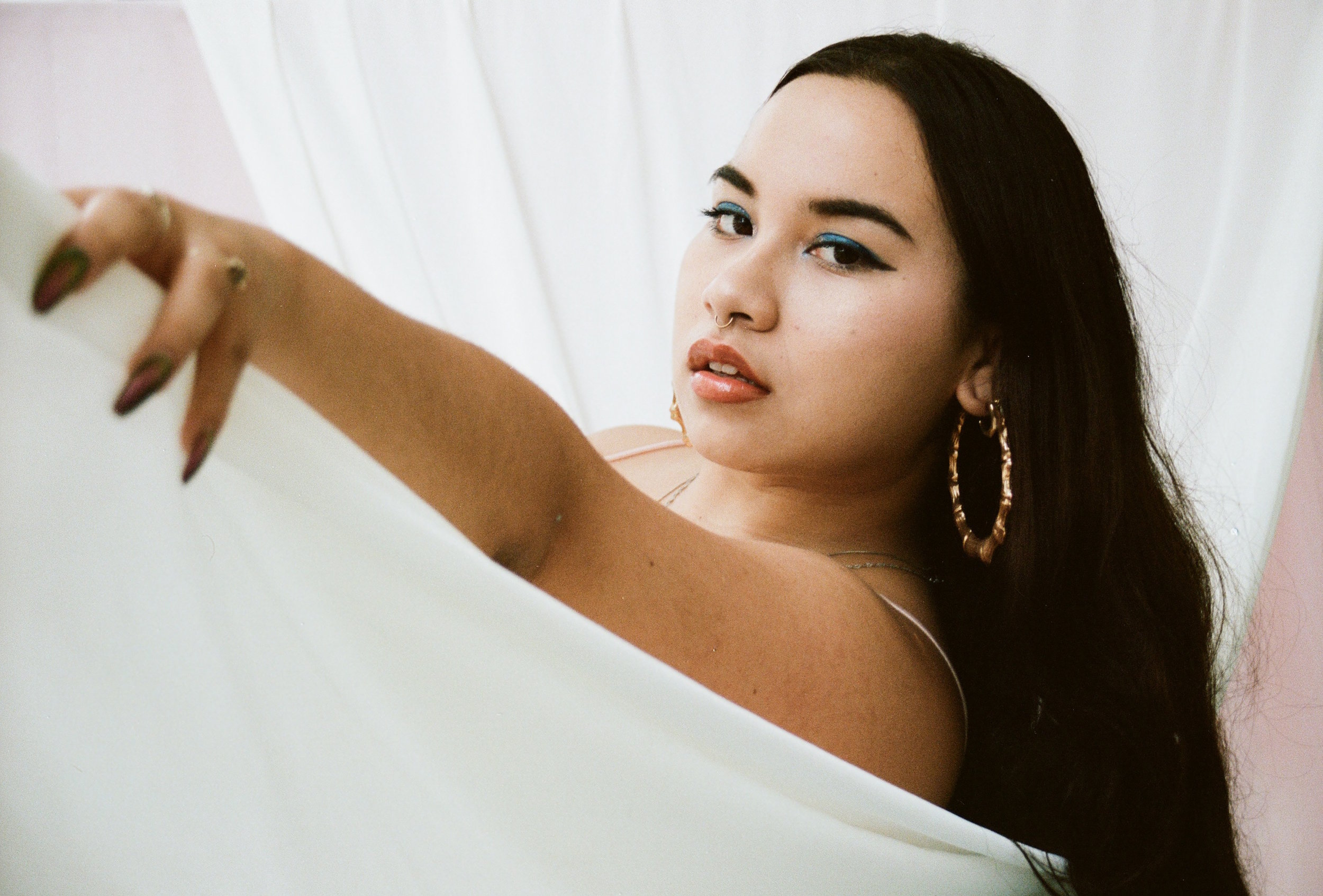
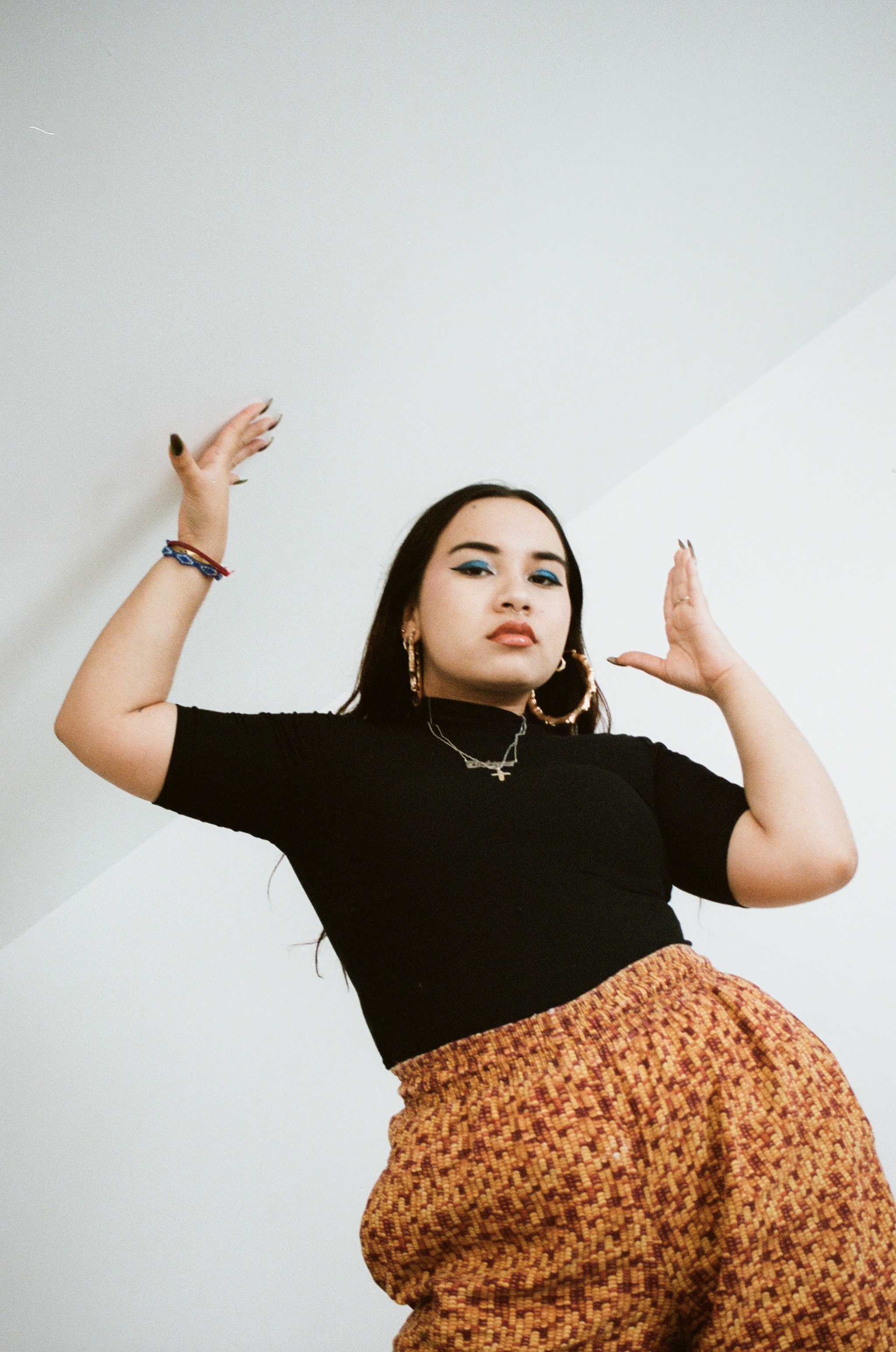
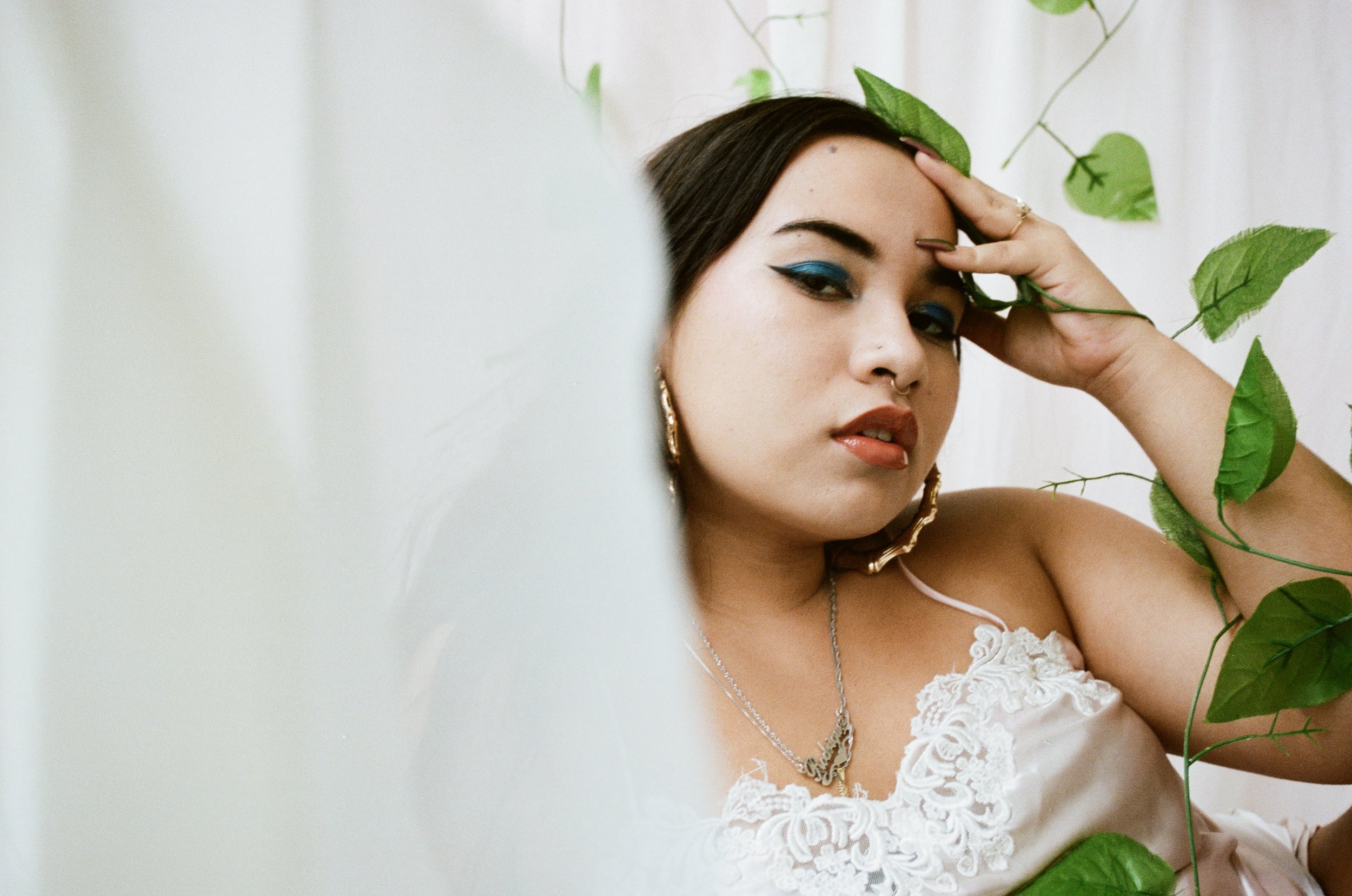
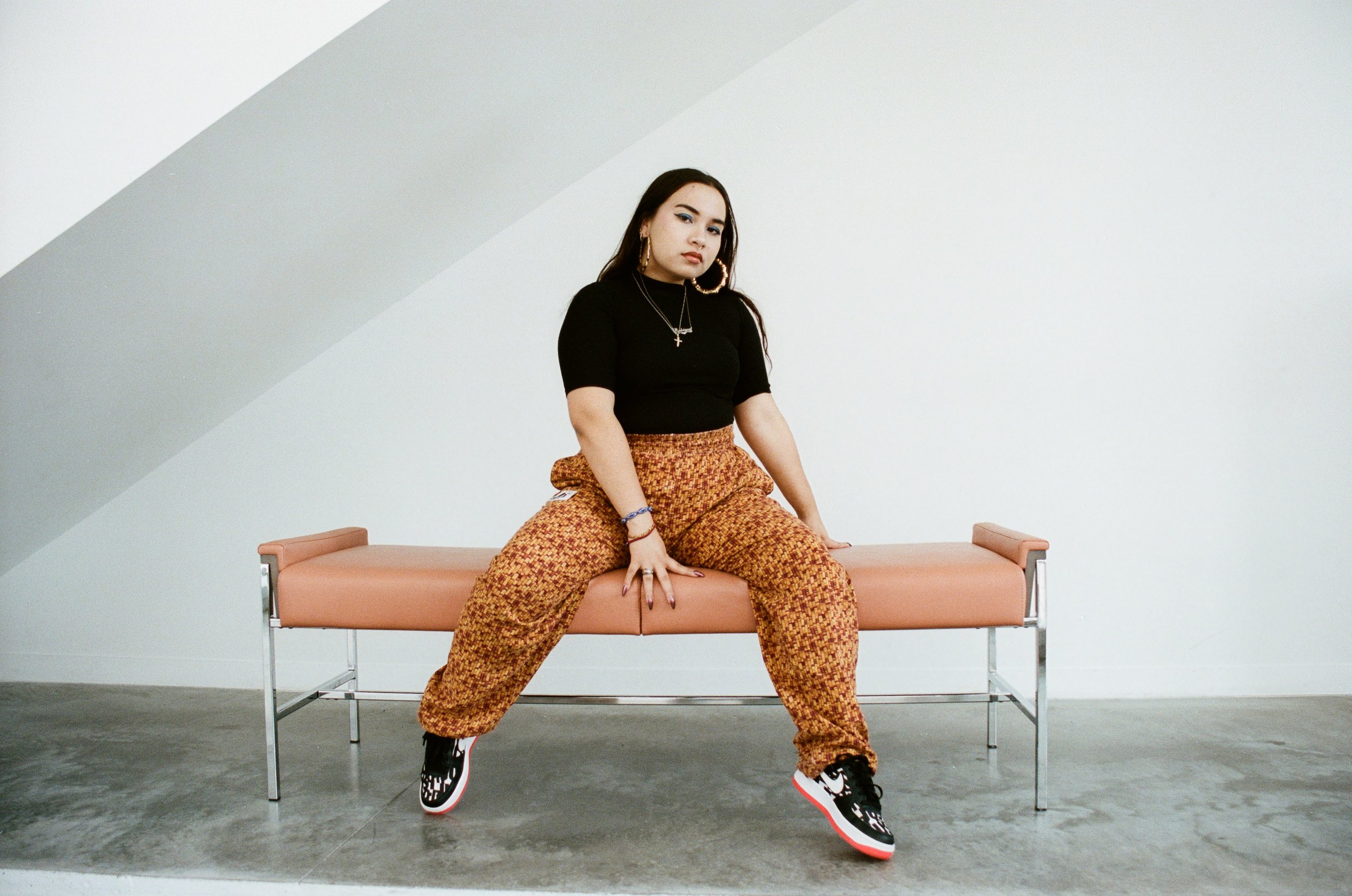
Photographs by Morgana Van Peebles
Interview by Isabella Rafky
Ivanna C. Rodríguez is a Mexican-Cuban artist that was born in Montreal, Canada and raised in Mexico City and Miami. She is a Barnard Sophomore majoring in Art History and is a poet, photographer, fiction writer, and founder of the South Florida Arts Collective. The collective is a safe space for Floridian artists of all mediums to be featured and build community.
What is your relationship with art? Any artists, spaces etc you look up to, engage with?
I consider myself very close to art since my childhood because I have two uncles and one aunt who are working artists in Mexico. Since I was a child I had the luck to be in constant contact to museums and exhibitions in many places in the world, so I feel like I'm very familiar with art. When it comes to artists, I find a lot of inspiration in photographers like Graciela Iturbide who is this Mexican photographer and is known to take a lot of street photography, specifically of mestizx and indigenous peoples-and that really influences me. As I said before, my uncles Felix Ayurnamat, Juan Barron, and my aunt Ines Barron are all sources of inspiration for me as well.
Apart from that, I look up to a lot of my friends who are all wonderful artists. I believe that people shy away from choosing colleagues as inspiration. I don't know if there’s this culture built around not uplifting fellow artists, or not admitting that you get inspired by people our age, but I feel like I am most inspired by young people. On top of that, I love Frida Kahlo, so much, she has shaped the way I view myself. From selfies to self-portraits or any kind of self analysis, I definitely look at it through that type of abstract lens, but I also love Bosch because he was insanely Avant-Garde for a Renaissance artist. In terms of spaces, I really enjoy visiting museums. Any museum, you can catch me there and if they’re free.. even better.
What’s your artistic process like?
My artistic process can be either spontaneous or planned– it varies usually, so I never know what to expect. Honestly, it really depends on my mood, but it usually starts with restlessness. I always write when I'm restless. I’m a very busy person so, in general, I don't have time nowadays to produce art but maybe in the past, I could actually decide to make something from my imagination. If I see something in the street that I really like I will jot it down on my phone [in] a couple of notes and then I will compose a poem. I also try to carry either one of my two cameras around whenever I go out because New York is such a powerful place for photography. But if I am not able to, I have an iPhone and even though the quality that is pretty mediocre I capture anything that catches my eye.
Are you spiritual? How has spirituality and language affected you and your writing?
I think that’s actually a really funny question because in my poetry seminar last week I just submitted a poem about my relationship to five different religions that have been close to me in my life through[out] different moments, but also continuously. I have finally come to the realization that while I am not a religious person, I’m a person full of faith. I have so much faith, and I would never consider myself an atheist. I do notice a pattern of spirituality and faith in a lot of my work whether it's photography or writing. I was raised Catholic from my mother’s side and through my father’s side, the Cuban side, some family practice Santería. As you can see, right now, I'm wearing a gold cross and a Yemaya ilde on my wrist. I don’t go to church often, but I do pray sometimes or light my candles to Yemaya and La Virgen de Guadalupe. I think there’s this powerful hybrid of religious identity within me, just as many of my other identities are hybrid, but I definitely am very spiritual. I think I just have an appreciation for faith; it’s very beautiful, and I think it’s something very powerful in art and life in general.
Which languages do you speak? What about language intrigues you? What do you associate with each language?
I speak English, hablo Español, et je parle français. I think that this year, I am able to finally say that I'm trilingual, but prior to that, I was most fluent in English and Spanish. I think what intrigues me about language is how you can convey the same things so differently, and I think a lot about how words vary from region to region - even Spanish varies so much! My Mexican Spanish is nothing like my Cuban Spanish. It’s really beautiful. I am interested in dialects, accents, colloquialisms, and any other particularities of language. My mom learned French in Canada, I always understood that type of French, but when studying French at Columbia, I was taught French from France, which is entirely different.
I feel the same way about English. English from the south is so different than English in New York. I associate languages with people and places. Spanish feels like home to me because most of my family speaks it. French feels like this powerful yet foreign thing to me. That, since I was born in Canada, from the destiny and fate of my parents’ lives, happens to be as much mine as any other language. English is just very easy to navigate and comfortable for me to communicate with in this school. Recently, I started using my photography and putting bits of my poems on top of it. I want to keep exploring that because I want to see what I link my words to visually.
Tell me about the arts collective you founded.
With the help of two of my friends– last September, we realized that not a lot was being done for artists that have not yet been established: so, young artists, artists with marginalized identity, or artists with low budgets, etc. in Miami but also in the greater south Florida area. While I'm not too fond of the name, and I might want to explore the possibility of changing it later, we realized that in order to get ourselves out there and be accessible,we had to come up with something pragmatic. We titled it South Florida Art Collective, SFAC for short. It’s easy, it's precise, and it does its job. There’s an application process to be featured, and while we accept everyone, we like to have a more business-like manner in which artists can submit a portfolio because we want to treat them as professional artists. We have over thirty five different artists on our page right now, and I am on a little hiatus with it right now because I am busy with work, my own art, and school in general. But I definitely want it to continue and for it to grow. We are about to hit two hundred followers, which is honestly more than I thought it would ever get. There's a lot of enthusiasm from friends and strangers, alike. I even received a submission from someone in Orlando, which is totally not south Florida. I think it just goes to show [that] artists from Florida, or people from the south, yearn to have a platform to show their work and meet other people. They deserve the world.
What are the distinctions between South Florida and Miami? Why do you feel like South Florida needed a space art-wise?
Miami is this very huge bubble that has more exposure to the rest of the world artistically and culturally than the rest of South Florida does. For instance Ft. Lauderdale, Palm Beach, Pompano, etc. are really big cities in the state of Florida, and they have a huge population but compared to Miami in terms of global access and recognition, they don’t have as much. It would be very selfish of me to exclude artists from Broward County, which is right next to Dade county, when the artists are just as capable and talented to be showcased. On top of that there is this mini-rivalry between the counties, and I just wanted to do something where we can all feel like we are part of this community. We are not Broward vs. Dade, we are just this huge part of the whole state of Florida that are getting together to promote each other, network with each other, and do something for the greater good of the state.
¿Cuánto afecta Miami a tu arte? ¿Cuánto extrañas a Miami?
Yo extraño a Miami con todo mi ser, es mi hogar––y pienso sobre él diariamente. No creo que mis padres entienden lo cuanto que amo a Miami! En términos de mi poesia y fotografia, pienso que aunque no todo lo que produzco está directamente vinculado con mi ciudad, de alguna manera refleja alguna parte de mi personalidad. Llevo casi catorce años viviendo en la Florida, así que aunque no quiera hacerlo intencionalmente, me influencia muchísimo. Miami, tal como yo es un lugar cálido, colorido, y lleno de vida––espero que mi arte también tenga el poder de evocar estos sentimientos tropicales y únicos de mi amada península.
Did where you grow up influence your artistic practice? How so?
Yeah, definitely. I really take into account the fact that I spent the first six and a half years of my life in Mexico City because that really influences my artistic practice and foundation. For the other thirteen to fourteen years of my life, growing up in Miami definitely made my art more... tropical isn’t the right word, but my art is very warm; I tend to lean to a warm color palette in photography. A lot of the images in my poetry are soaked with sun, and you can just feel this vibrancy that really resonates with Miami even if I’m not talking about Miami. I feel like the places I grew up in, made me be the type of person I am and that translates into all of the work I am making, whether I want it to or not.
How would you describe your poetry?
I have actually been writing poetry probably longer than I have been doing any other medium of art. I’ve kept a journal since literally the eighth grade. It is full of poems, not many of them are good, a lot of them are very angsty. Around ninth grade was when I started acknowledging that what I was doing was definitely poetry, and I started taking it more seriously. I feel like I have since departed from love poetry and more dramatic things and [started to] focus more on my identity and how I navigate spaces as the person I am, or how I view the world because of the way that I am. But I have been trying to play around with different themes that I am not super comfortable with. I just wrote a piece on religion, and I wrote a poem on my tattoos yesterday-it’s something that’s superficial. I like to reflect more in my poetry but now I'm just starting to allow myself to write about everyday things because they are just as valid. I don’t think I have a favorite poem, but I definitely am proud of the ones that I have gotten published; they are my babies. Like “La Sagrada Familia”, featured in my Ratrock portfolio, but I hope to get more of it out there.
What’s your series “La Sagrada Familia” about?
The title comes from, well “La Sagrada Familia,” the Spanish term for Jesus, Joseph, and Mary. I am obviously not Jesus, but that’s a family of three and I [was like] ‘hey, I have a family of three!’ La Sagrada Familia is also this huge basilica in Barcelona that’s unfinished. The fact that it’s unfinished is so striking to me; I have been lucky to be there before, and it’s so magnificent that I was inspired.
My poem has nothing to do with the architecture, but it gave me the title. It’s a three-part poem. The first part is “El Padre,” which talks about my relationship to Mexico where my mother was born. Since my mother is Mexican, Mexico is my father in that sense. The second part [is] “La Madre,” which is about Cuba since my father is Cuban. Cuba is my mother, and it just talks about my relationship to the island and how I have only been able to be there once in my life - despite it being a forty-five minute flight from Miami. Due to government issues and my dad having to pay to renew his passport to go... it’s just an issue. I am hoping to go there soon though.
The last part, “La Hija” is about Montreal, I am the daughter. I feel like it was probably the hardest piece to write because when I wrote it I had only been to Montreal once since my parents were deported in 1999. I still resented Montreal. I fell in love with the city– it’s a gorgeous place– but I was so mad because I felt robbed that I didn't get to grow up there. I felt the need to write about my relationship it. Since then I was able to go again. I spent my twentieth birthday there and I realized that I don't feel so angry at it anymore. So maybe I will write a part two, but who knows. It definitely is a heartfelt poem and shows how much I love my three nationalities differently, but tremendously.
How did you get started with photography? What do you prefer photographing?
I got into photography from as young as I could remember, just because my mom has always been so passionate about it. I don't know anyone else on this earth [who] has more albums of baby pictures than I do; my family loves recording our history through images. We still have all of my mom’s film negatives and there are probably five different cameras lying around in my house. I was gifted my first camera when I was ten. It was this tiny Fujifilm. It wasn’t until I got to college [that] I started to take it more seriously as an art form. One of my dearest friends loaned me their spare Sony A7 when I mentioned I wanted to improve my skills, so I shoot with that camera now. Just recently I got a film camera of my own, and I love it so much. I like capturing organic moments and candids in the street. I feel like that really immortalizes personalities and moments, and it can make even strangers feel intimate. A more constructed or curated shoot is just as fun to come up with, but is definitely more orchestrated. Telling a model how to pose doesn't feel fake at all, but I do enjoy capturing a natural moment vs a posed moment.
How has your identity influenced your artistic practice? What motivates you to keep going?
I am latinx. I feel that it’s very uplifting to get so much attention, love, and great feedback for my art because I feel like in a white-dominated space I would just be shrugged off and ignored or considered sub-par. I do feel that specifically, while I am Latinx, I am also mestizx. I am not Afro-Latinx, I am not indigenous. I feel like that specific identity branch that I belong to is also...misinterpreted, and misrepresented. A mestizx is the result of colonization and intermixing with indigenous peoples. Latin America is a massive agglomeration of different identities. While latinidad itself is not monolithic, many people wrongly interpret it as such. Accepting my ethnic/racial identity has been a long process, but now I know my place and what I am able to say and what I am not. And that has definitely facilitated my artistic practice and the thematics of my practice. My own happiness and my parents’ happiness [motivates me to keep going]. It is just so satisfying, like when my mom read my published poem she was like ‘this is really good’ (and my mom is that type of person who does not give compliments out for free). When I got into Barnard she was like, ‘okay good, now where’s the financial aid?’ and that was her response . I think that that [it] is very motivating that I can make work that will make my family proud and make me happy; it's really all I need.
How do you want your work to be shown or experienced?
Well, it really depends on the space [the work] would be featured [in]. I like showing my photography in print, rather than it being digital, just because I encourage people to feel the texture of the photo paper I use. I get really nervous reading my poetry out loud to this day. Today, I had to read my poem out loud in class, and I was shaking the whole time. I don't know why I shake because I know nobody's ever gonna tell me something bad or make fun of me, but I think that I have been exploring [doing a] pre-recording of me reading my work and just implementing it on top of video, so that people can experience my true voice. I love when people read my work in general, but I do want people to hear my voice: it's more powerful that way.
Do you see yourself as an artist? Do you imagine working professionally as an artist?
I finally have come to accept that I am an artist and that I am going to take up all the space I want, as an artist. I am an art history major, and I have been planning on being an Art History major for a couple of years before I got to Barnard. I feel like I always shied away from labeling myself as an artist just because I didn't really have a solid portfolio. Now that I do, it’s good to feel like you are an artist and that you have been accepted among a community of artists. I don't know if I would imagine myself just being an artist, I do want to be a teaching artist, which is why I'm minoring in education. I hope to work in the education department at a museum, so I can teach while implementing my craft and pedagogy. I would also love to continue freelancing and creating on the low. I would just love to keep creating and selling prints if possible and make a little side money off of it– it would be very gratifying.
Why did you submit to Ratrock?
I submitted to Ratrock because Isabella Rafky told me to submit to Ratrock. No, truly it’s why I did. I went to the Ratrock site and was like wait ‘this is so cool; all these people are so cool.’ I definitely felt like I was not deserving of sharing such a cool space with such talented people, but I'm glad Ms. Isabella Rafky told me to submit because now I'm here.
